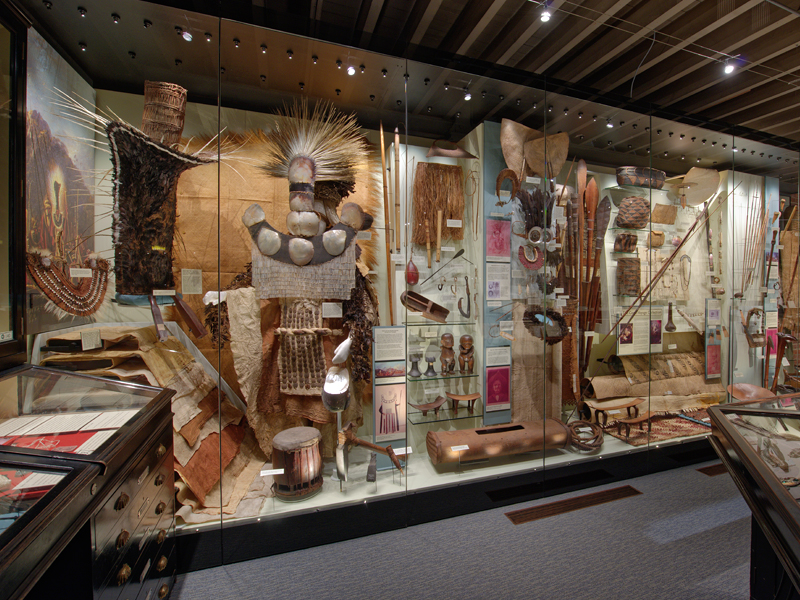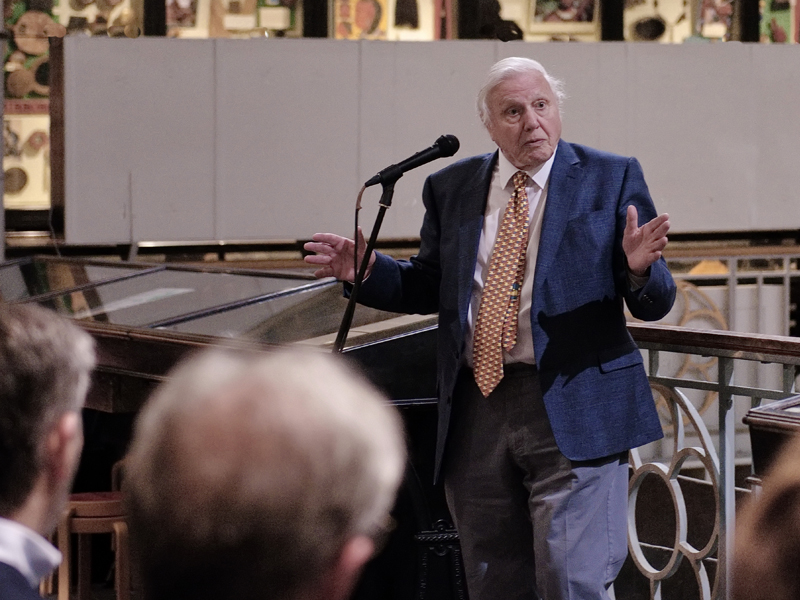Art and artefacts collected on the famous Pacific voyages of Captain James Cook have gone on display in a new permanent exhibition at the Pitt Rivers Museum, thanks to generous support from the Clothworkers' Foundation, the DCMS Wolfson Museums and Galleries Improvement Fund, and the Friends of the Museum.

The new display illustrates the remarkable cultural productions of Pacific Islander societies at the time of first contact with European voyagers. It comprises over 200 artefacts collected during Cook's journeys (1768-1771 and 1772-1775), including one of the few surviving examples of a Tahitian mourner's dress, a unique barkcloth quilt from Rapa Nui, and Maori cloaks, belts and ornaments from New Zealand.
The exhibition has been made possible thanks to generous support from the Clothworkers' Foundation, following the awarding of a Conservation Fellowship to Jeremy Uden, Deputy Head of Conservation at the Pitt Rivers. The Fellowship has enabled Mr. Uden to study the artefacts held at the museum, and investigate the plant materials, resins and construction techniques used during their creation.
Further support from the DCMS Wolfson Museums and Galleries Improvement Fund, and from the Friends of the Museum, has enabled the purchase of the custom-made case in which the collection is now displayed.

An event was held at the museum on Thursday 21 April to celebrate the redisplay of the Cook-Voyage collection, which draws on more than twenty years of research by museum staff and builds on collaborations with academics, artists, curators, scholars and students from around the world.
Special guest Sir David Attenborough remarked that Cook's voyages catalogued the 'whole of mankind's interest in the environment', and that the specimens collected served as a 'benchmark of human activities in the early 18th century.'
The evening also included a speech by Dr Laura Van Broekhoven, Director of the Pitt Rivers Museum, in which she paid tribute to the excellent work of Mr. Uden and his colleague Jeremy Coote, Joint Head of Collections, in conserving and researching the collection.